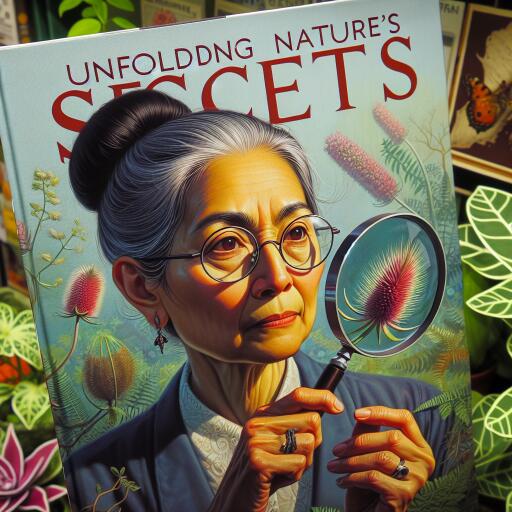
Publication Promotes Professor’s Passion for Plants
In the scenic expanses of Jinan, Shandong province, Professor Wang Renqing has been a beacon of ecological studies, dedicating his life to the study of plants and their critical roles within our environment. At the age of 69, his enduring journey through the verdant realms of botany has culminated in a significant literary contribution: the Vegegraphy of Shandong, a cornerstone of a larger series exploring China’s coastal vegetation.
This mammoth undertaking, a 1.3-million-word chronicle, draws on over 70 years of meticulous research carried out by Wang and his dedicated team. The Vegegraphy of Shandong stands as a testament to their relentless pursuit of understanding, offering exhaustive details on the region’s plant life, the dynamics of its vegetation changes, and the implications for conservation efforts and nature reserve management.
Wang’s academic excellence and contributions to ecological research have been recognized with two second-place National Natural Science Awards, reflecting his and his team’s impactful work on national research projects related to vegetation. He stands on the shoulders of mentors and predecessors at Shandong University, extending a legacy of botanical research that dates back to the 1950s. Through more than 10 series encompassing 36 volumes, they have woven a rich tapestry of knowledge that draws together three generations of ecological scholars.
When asked about his lifelong commitment to the study of plants, Wang offers a simple yet profound insight, “Plants are the ‘spokespersons’ of ecology.” His work highlights the importance of understanding vegetation as a window into the health and complexities of ecosystems at large.
Wang’s journey into the world of ecology began in 1975 at Shandong University, where his initial focus on Chinese herbal medicine broadened into a deep interest in ecology. His academic path has taken him across the diverse landscapes of China, from the cold coniferous forests of the Greater Hinggan Mountains to the tropical biodiversity of Hainan province, and from the lush meadow grasslands of Hulunbuir to the arid sands of the Taklimakan Desert.
Over the course of various nationally and provincially sponsored nature reserve surveys, Wang and his team have cataloged the vast natural vegetation types across China, their work providing crucial data for effective ecological management and preservation strategies.
Among the focal points of his research has been the Yellow River estuary area, where for nearly three decades, he has documented the profound ecological changes affecting this vital region. This endeavor resulted in three published works on the vegetation and biodiversity of the Yellow River Delta wetland, illuminating the ecological transformations within these national-level protected areas.
The challenge of ecological fieldwork is not lost on Wang, who acknowledges the inherent dangers of outdoor exploration, from harmful wildlife to difficult terrains. Yet, for him, these challenges are overshadowed by the satisfaction of uncovering new ecological insights and contributing to a better understanding of our natural world.
Wang’s expertise and dedication have carried him beyond the borders of China on international scientific expeditions across continents from Asia to North America and Europe. These journeys have not only enriched his own knowledge but have also contributed significantly to the global scientific community’s understanding of ecology.
In recognition of his lifelong dedication and numerous achievements, the Botanical Society of China awarded Wang with an outstanding contribution award last year, further solidifying his status as a leading figure in the field of botanical studies.
Professor Wang Renqing’s story is one of unwavering passion for the natural world, a narrative that not only highlights the beauty and complexity of plant life but also underscores the importance of ecological preservation for future generations.





Leave a Reply